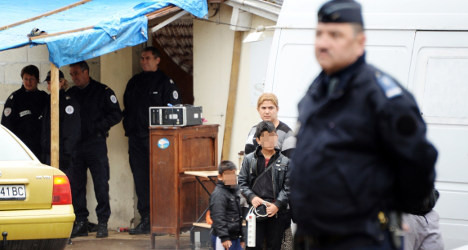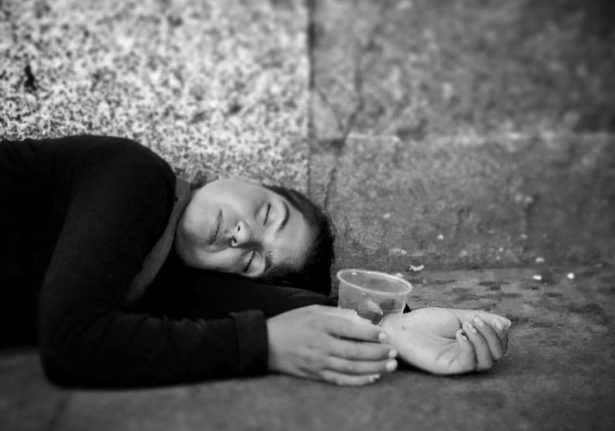The UN rights chief on Friday condemned what he described as a “systematic national policy” in France to evict Roma, two weeks after more than 150 people were forced from a shantytown north of Paris.
“It is becoming increasingly apparent that there is a systematic national policy to forcibly evict the Roma,” Zeid Ra'ad Al Hussein said in a statement, attacking the policy as “punitive and destructive.”
A failure to improve treatment of Roma people “simply exacerbates entrenched popular discrimination against what is already one of Europe's most deprived and marginalised communities,” he said.
France has come under fire from various quarters in recent years for its policy towards the Roma, which basically involves evicting them from their makeshift camps and deporting them – despite the fact that as EU citizens they should enjoy the same freedom of movement as British or Germans.
The latest eviction came last month when around 300 Roma were forced out of a shanty town in the northern suburbs of Paris despite a strong call for the camp to remain.
The collection of makeshift homes had stood in the area for around seven years – enough to make it the oldest of its kind in France. A judge ruled that enough was enough and that the slum had to be torn down.
Charity organizations had offered to fund and carry out a cleaning of the slum, to install running water, and to help register the residents in schools and jobs with the long-term goal of joining regular society.
But their offer of help fell on deaf ears.
Many thought France's hardline policy towards the Roma would change in 2012 when Socialist President François Hollande was elected into power, but instead the evictions have continued and even accelerated.
The policy has prompted Brussels to threaten sanctions against the French government.
“Free movement as freedom to reside in another country are fundamental rights. If these principles enshrined in the treaties are not met, then the commission will use all means at its disposal,” to sanction such violations, warned European Commission spokesman Olivier Bailly back in 2013.
“The Roma, like all EU citizens, enjoy the right to freedom of movement in all EU member states and to reside in a country other than their country of origin,” Bailly added.
The French Prime Minister Manuel Valls has been an outspoken defender of the country's policy of deporting migrants, but was accused of being inflammatory and “encouraging animosity” when he said Roma people would never integrate in France.
Despite thousands of government-financed repatriations, the numbers of Roma in France have remained stable, reflecting the reality that anyone flown back to Romania or Bulgaria can immediately return to France under EU freedom of movement laws.







 Please whitelist us to continue reading.
Please whitelist us to continue reading.
Member comments